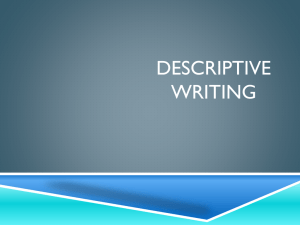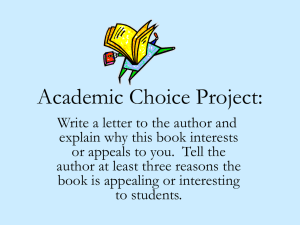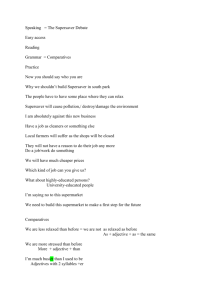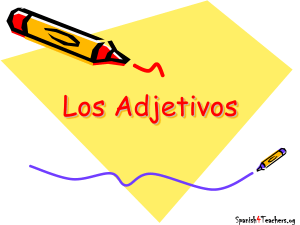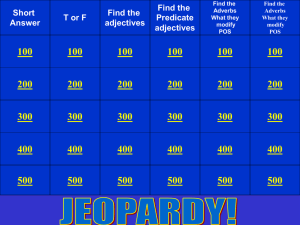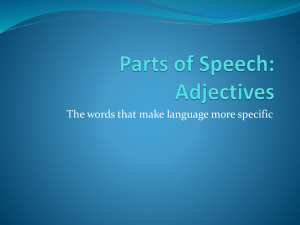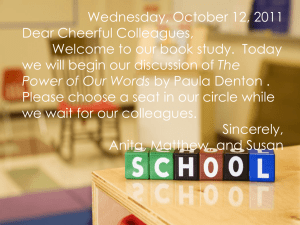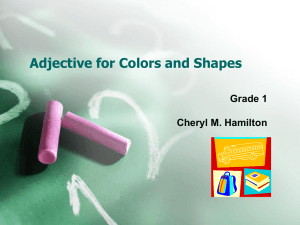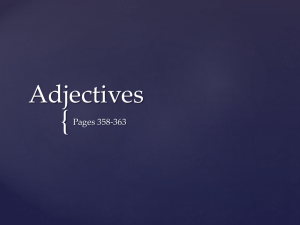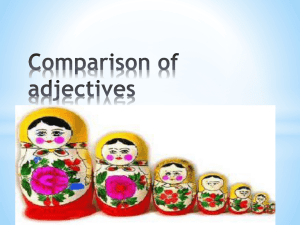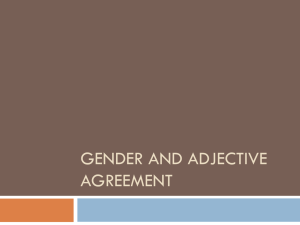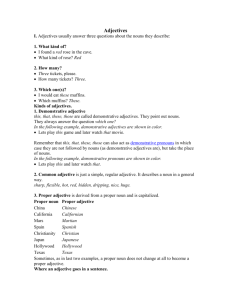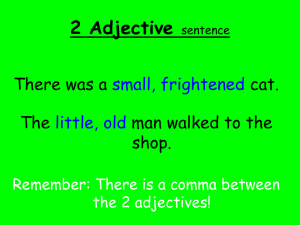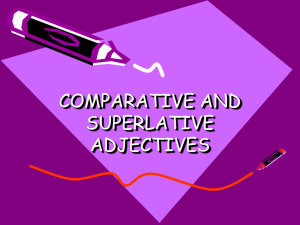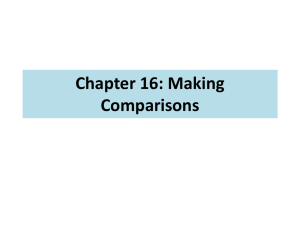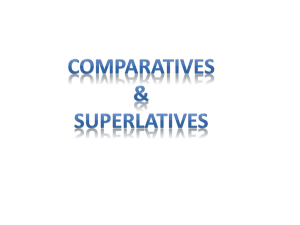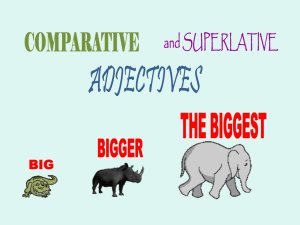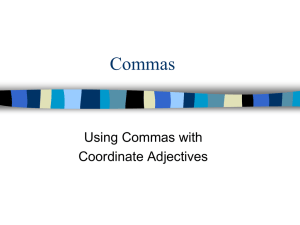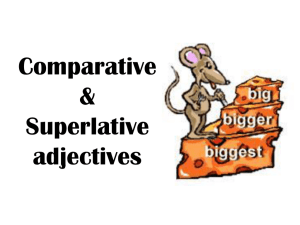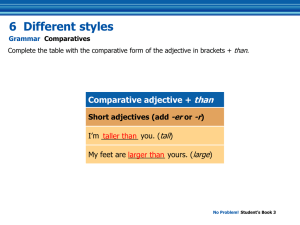Adjectives I - WordPress.com
advertisement
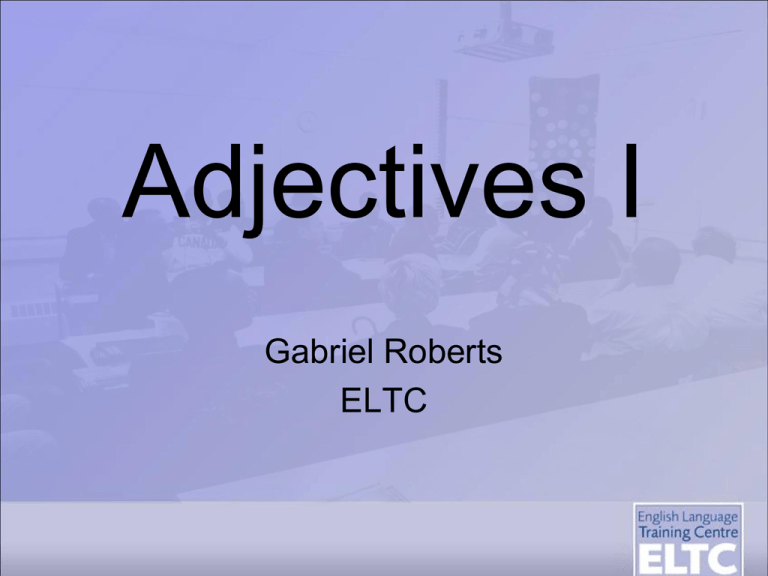
Adjectives I Gabriel Roberts ELTC Adjectives are often called describing words although it is more correct to call them defining words as they define the noun that they come before. If we want to talk about a car for example then we can give greater quality to the car by putting an adjective before the noun car. The blue car The large car More than one adjective can be used to define a noun. In this case there is a particular order let's take the example: lovely big old black quality size age colour Latin leather origin material This is a typical example of adjective order but you should only use so many adjectives when you want to write a very descriptive sentence. It is a lot easier to remember this simple rule about adjective order: a opinion nice fact young girl Of course, the girl may not be nice in everybody's opinion but most people would agree on her young age. Task 1 Put these adjectives in the right order 1. huge patterned 2. old ridiculous 3. yellow unstoppable 4. shiny fantastic 5. unstable young 6. small orange silk well-made new sofa joke lorry shoes minds handbag Adjectives as a Compliment Adjectives can also be used in sentences without a noun. In this case the adjective is called the complement in the 'Subject Verb Complement' construction. subject verb complement I am cold She is tall Comparative Adjectives When we want to compare between two things we can use a comparative adjective to define the noun. To do this we need to count the syllables in a word (a syllable is a sound part of a word) if there are one or two syllables in a word, we simply add -er to the end of the word. If there are three or more syllables to a word, we put the word more before the adjective and very often the word than after the adjective big bigger long longer sad sadder horrible more horrible expensive more expensive interesting more interesting Superlative Adjectives When we want to say that a noun is at the top of its category we can use the superlative the form of the adjective. If the adjective it is a two syllables or less than we simply add -est to the end of the adjective. If it is three syllables or more than we replace more with the most. big biggest long longest sad saddest horrible most horrible expensive most expensive interesting most interesting There are some exceptions good better best bad worse worst fun more fun the most fun Task 2 Conjugate these adjectives into their comparative and superlative forms 1. happy 2. promising 3. inevitable 4. close 5. tall 6. awful 7. deep 8. profession
